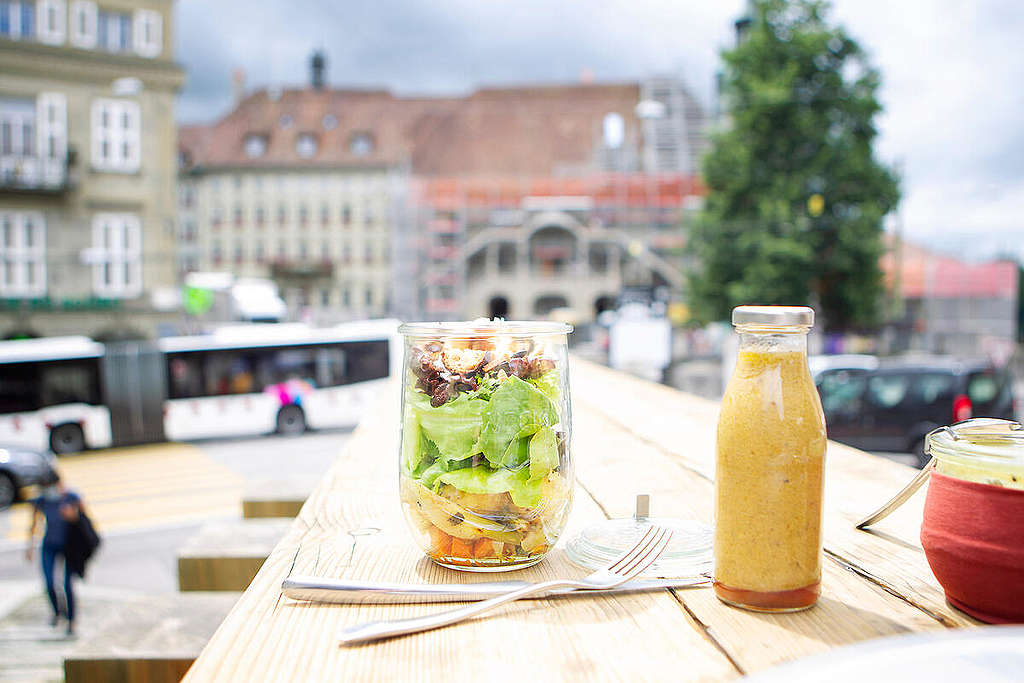On March 31, FamilyMart announced that they would introduce an innovative rental cup system in 400 of their Taiwan stores. FamilyMart is the second biggest convenience store chain in Taiwan and the first in Asia to launch a large-scale reusable cup system.
The announcement follows three years of campaigning by Greenpeace activists in Taiwan. FamilyMart’s new rental company program is an example of what could be possible for convenience store chains across Asia.
How will the rental cup system influence the global plastic-free movement?
FamilyMart has committed to launch a rental cup system in 10% of their retail branches by the end of 2022. The system is simple – upon purchase of a beverage, consumers can rent a reusable cup for free.
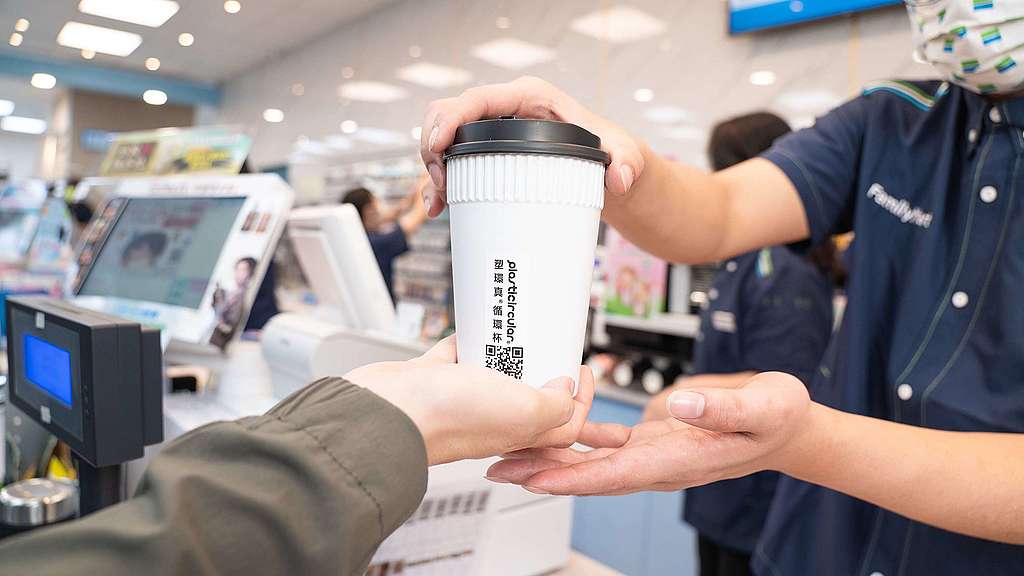
The global plastic pollution crisis cannot be solved by the implementation of one rental cup system alone. However, this decision by one of the most prominent retailers in Taiwan can both help to introduce new consumer habits and show other retailers that they too can take action to reduce plastic pollution.
FamilyMart’s new program demonstrates to the retail industry and cafe chains like Starbucks, that a reusable, returnable cup program is feasible, scalable and practical.
This milestone follows three years of campaigning in Taiwan, and our submission of a petition signed by 219,920 of our supporters. When we speak out all together, the impact can be powerful!
FamilyMart showed clear confidence in scaling up its plastic-reduction measures after rounds of innovative plastic reduction trials in Taiwan, including rental bento and rental cup with local authority and Greenpeace. All the initiatives have received overwhelmingly positive public feedback.
“In East Asia, we have a lot of convenience stores – you could even say that it’s part of our culture. As campaigners, we know that retailers must play a key role in combating the plastic crisis – we need big brands to reduce plastic use at the source. And when major brands take action locally, it can also set an example for companies beyond Taiwan, and even beyond Asia,” said plastics project leader Ling Chun Yeung.
Our plastic-free journey in Taiwan
Our plastics team in Taiwan started in 2019 by targeting the retail industry and began to focus on convenience stores the following year. We conducted surveys and investigations, and launched two ranking reports about major brands, using data to exert pressure on companies.
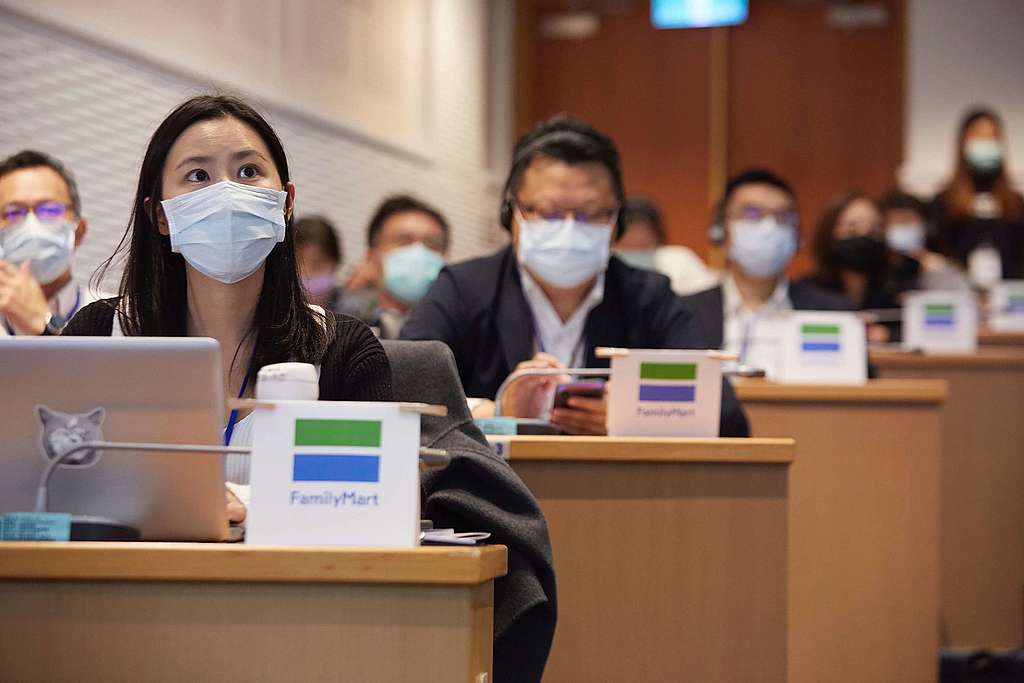
During the pandemic, a lot of companies have fallen back on single-use plastic. But that only means we need to work even harder. In response, Greenpeace has advocated for a contactless purchase procedure, issued a joint statement with international and Taiwanese public health experts, and organized online forums with industry leaders to discuss practical solutions for plastic reduction.
In September 2021, Greenpeace campaigners organized a trial rental cup project in Taichung called the “Plastic Free Alliance”, which involved rental cup service providers, coffee shops, FamilyMart and city government officials. The trial was a success and helped pave the way for this big way against plastic pollution.
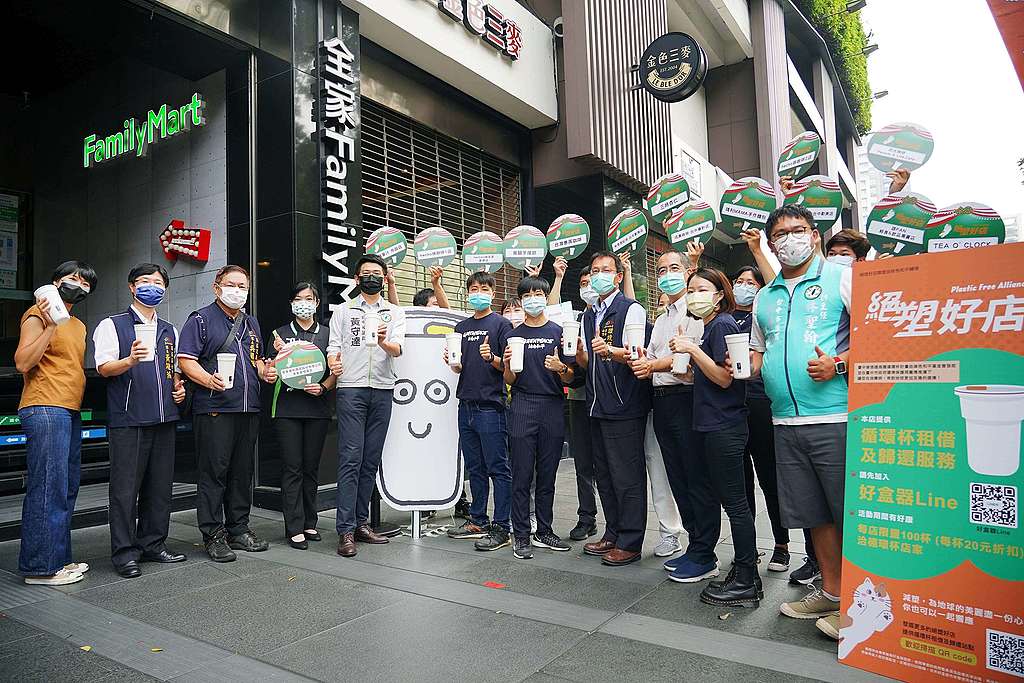
Global collaboration to defeat plastic pollution
Worldwide, Greenpeace aims to halve single-use plastic usage globally by 2025. In East Asia, our teams in Hong Kong, Beijing, Taipei, Seoul and Tokyo are campaigning for practical and concrete plastic-reduction solutions.
Regionally our teams have seen exciting progress. Lotte Mart, one of the largest supermarket chains in Korea, committed to cut its single-use plastic usage by 50% by 2025. In Hong Kong, six fast food chains, including KFC and McDonald’s, have launched new measures to reduce single-use plastic, and ParknShop, a local supermarket chain, has begun to provide many more plastic-free options and incentives to customers.
As a regional office, Greenpeace East Asia is able to share resources and experiences, especially when it comes to lobbying tactics. Our shared purpose creates a synergy that enables us to tackle plastic pollution on a regional scale.
“In addition to publishing reports and carrying out direct actions to exert pressure on our corporate targets, our team has been in dialogue with representatives from retail corporations about solutions to the plastics crisis and case studies. This definitely increases the incentive for companies to up their game.” Yeung said.
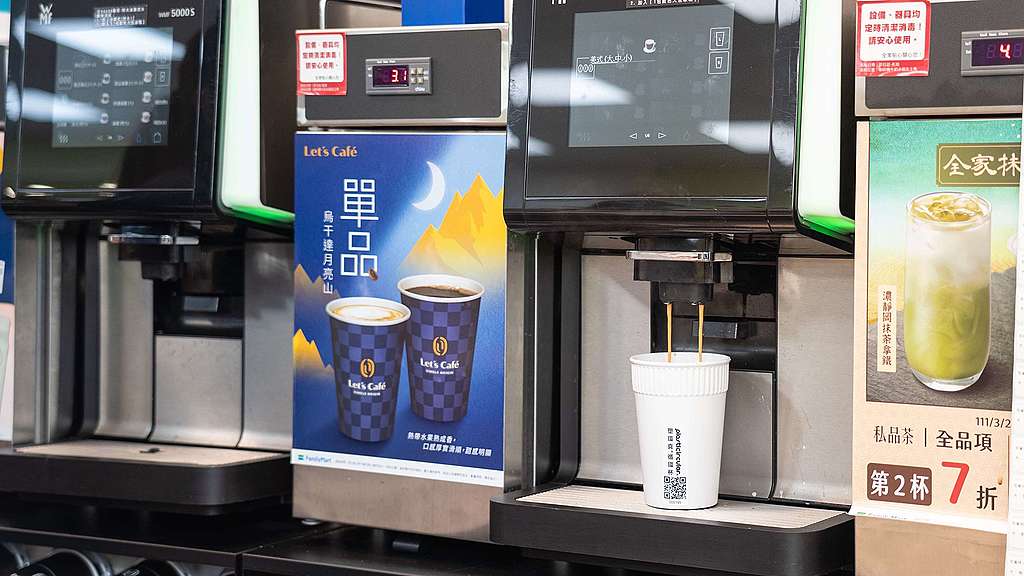
What’s next?
We estimate that even if only 1% of customers make use of FamilyMart’s new rental cup system, up to 100,000 disposable cups can be saved each year. If 10% of customers make the switch, 1,000,000 disposable cups would be saved.
Over the past year, more companies have started to seek out our advice and collaboration in reducing single-use plastic, and there’s potential for Greenpeace to have an even bigger impact in the future.
Now that the plastic free movement is underway, Greenpeace will continue to test out new tactics and strategies. As consumers, when we continue to speak out, big brands listen. If enough people call on companies to make a change, change will happen.
